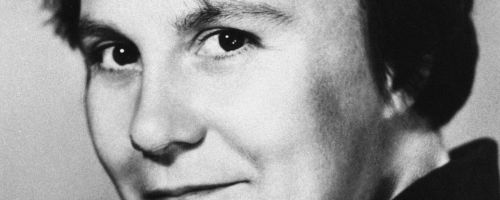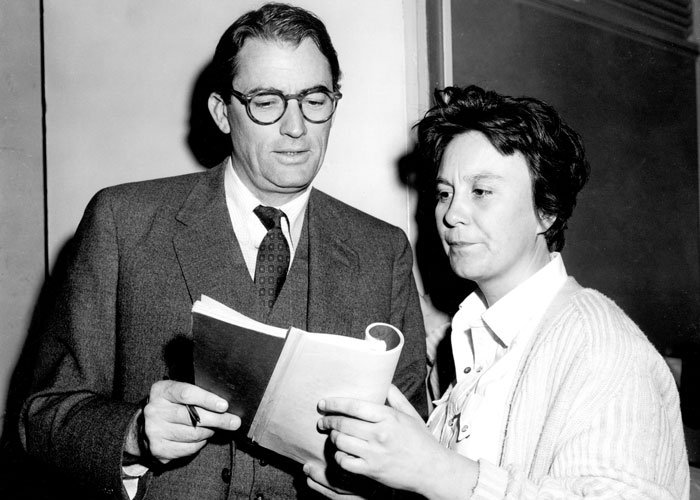 By Michael Ashcraft and Mark Ellis
By Michael Ashcraft and Mark Ellis
Harper Lee – whose Pulitzer Prize winning book To Kill a Mockingbird stirred the divorce of Christianity and racism – died in her sleep on February 19th. She was 89.
Lee was a Methodist Christian who spent her childhood in Monroeville, Alabama. Her observations about race and class in the Deep South of the 1930s formed the basis for the novel that became required reading in American schools.
Lee’s contribution to Christian ethics was monumental. She fictionalized ladies’ missionary societies sharing teas and cakes while bantering about racial inequality. The central plot of a white lawyer, Atticus Finch, who courageously defends a wrongly accused black man, takes a back seat to the critique of a society which mixes toxically the liberating faith of Christianity with the oppression of racism.
 “What that one story did, more powerfully than one hundred speeches possibly could, was change the way we saw each other and then the way we saw ourselves,” said President Barak Obama in a statement. “Through the uncorrupted eyes of a child, she showed us the beautiful complexity of our common humanity and the importance of striving for justice in our own lives, our communities and our country.”
“What that one story did, more powerfully than one hundred speeches possibly could, was change the way we saw each other and then the way we saw ourselves,” said President Barak Obama in a statement. “Through the uncorrupted eyes of a child, she showed us the beautiful complexity of our common humanity and the importance of striving for justice in our own lives, our communities and our country.”
Published in 1960, To Kill a Mocking Bird sold over 40 million copies worldwide and garnered Lee a Pulitzer Prize. The world clamored for a sequel but Lee was uninterested, until the unexpected publishing of Go Set a Watchman in 2015, which many believe was a rough draft for Mockingbird. Critics questioned if an aged Lee was truly cognizant and supportive of the decision of people surrounding her to publish.
In Watchman, many were surprised when an aging Atticus — who once championed equality — argues against school integration. It prompts soul searching about reconciling idealism about equality with deep-seated racial fears.

Lee was seen as eccentric because she shunned public attention. CBN reports that in Monroeville Lee was viewed as warm, vibrant and witty. She enjoyed life, played golf, read voraciously and attended plays and concerts. Truman Capote was a childhood friend, purportedly the inspiration for Dill in Mockingbird.
Lee studied law and graduated from the University of Alabama but followed Capote to New York to become a writer instead of a lawyer. She worked as an airlines reservation agent while she wrote and struggled financially until Harper Collins published Mockingbird. A 1962 film adaptation starring Gregory Peck won an Academy Award and contributed to the book’s notoriety. In 2007, she was awarded the Presidential Medal of Freedom for her contributions to American literature.
In December 1961, Lee showed a glimmer of her Christianity in a McCall’s essay about leaving New York for Christmas and returning to her hometown. “Christmas in New York can be rather a melancholy occasion,” she wrote. “I missed my brother’s night-before-Christmas mask of rectitude and my father’s bumblebee bass humming ‘Joy to the World.’”
And in Vogue in April 1961, she expounded on love: “Love is present in pity, compassion, romance, affection. One thing identifies love and isolates it from kindred emotions: Love admits not of self.”
But if Mockingbird was an important piece of Civil Rights history, it also defied being confined to the genre of racial relations. Mockingbird transcends the Civil Rights issue and celebrates the redemption of even the most despicable people. In one of the novel’s vignettes, the protagonist Scout is forced by her father to read to the cantankerous Mrs. Dubose to distract her as she tried to get free from morphine addiction – her last desire before she died.
“I wanted you to to see something about her – I wanted you to see what real courage is, instead of getting the idea that courage is a man with a gun in his hand,” Atticus said. “It’s when you know you’re licked before you begin but you begin anyway and you see it through no matter what… She was the bravest person I ever knew.”
Lee seems to be saying: No one is to be despised. Everyone has his struggles and prejudices and should be appreciated for whatever good he has, even when we cannot discern it. The books is celebration of what it means to be human in this imperfect world. It affirms that only God’s grace can rescue us from our fallen nature.
Lee told radio WQXR in 1964: “My objectives are very limited. I want to do the best I can with the talent that God gave me, I suppose. I would like to be the chronicler of something that I think is going down the drain very swiftly, and that is small-town, middle-class Southern life. There is something universal in it. Something decent to be said for it, and something to lament, once it goes, in its passing. In other words, all I want to be is the Jane Austen of south Alabama.”




My favorite book for the last 23 years. I’ve read it several times but I’ll never forget the first time when I was 12. Great write up!
thanks for the encouragement, zuri! blessings!
Excellent synopsis of Harper Lee’s life. “To Kill a Mockingbird” is by far one of my most favorite classic 1960’s movies, admittedly having seen it countless times. I was one of the millions of Americans, who from my own childhood, was profoundly affected by the story of racial injustice captured by Ms. Lee’s writing. Like a permanent marker cannot be so easily erased, her remarkable notable influence has left an indelible imprint upon both my heart and soul for a lifetime.
thanks for the comment cari. blessings!
Comments are closed.